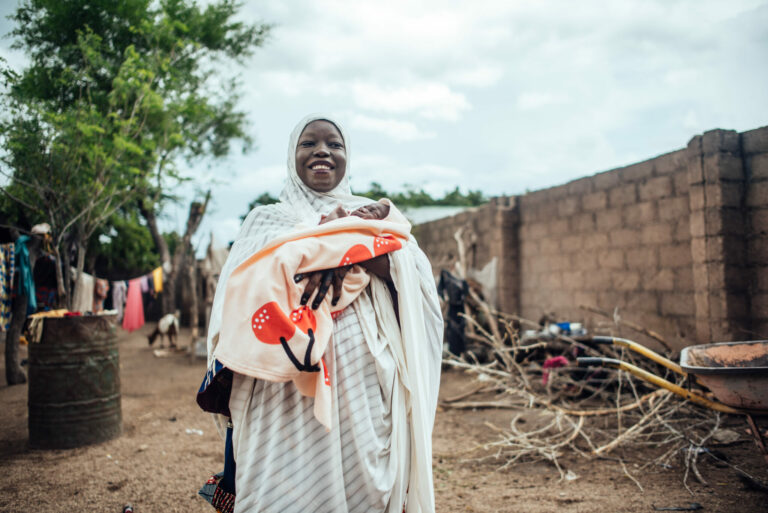Photo Caption: ©International Rescue Committee; Photo: KC Nwakalor for the IRC and it is a photo of a mother and her newborn in Borno, Nigeria
The state of maternal and newborn health serves as an important measure of a health system’s strength as it showcases both access to quality health care and coverage of effective interventions to prevent and manage the common causes of morbidity and mortality. Unfortunately, countries affected by crisis and conflict often have weak health systems, limited resources, and consequently staggeringly high rates of maternal and newborn mortality. The Mortality in Humanitarian Settings Dashboard reveals that 64% of global maternal deaths, 50% of newborn deaths and 51% of stillbirths come from countries with humanitarian response plans in 2023. Even more, the recent UN report on “Trends in maternal mortality 2000 to 2020” revealed that while progress to reduce maternal deaths is stagnating worldwide, countries responding to humanitarian crises lag furthest behind.
The EQUAL research consortium – funded by UK aid from the UK government – is working to generate evidence on effective approaches to deliver life-saving MNH care in countries affected by conflict including in the Democratic Republic of Congo (DRC), Nigeria, Somalia, and South Sudan. These are also four countries experiencing among the poorest MNH outcomes worldwide.
While the consortium executes studies across a range of thematic areas, the EQUAL partners also sought to better understand the state of MNH in the contexts where they are working including the overall health structure, relevant MNH policies, coordination platforms, and more. This information has been documented in four MNH Country profiles (links below) which will be updated annually.
Country Profiles:
